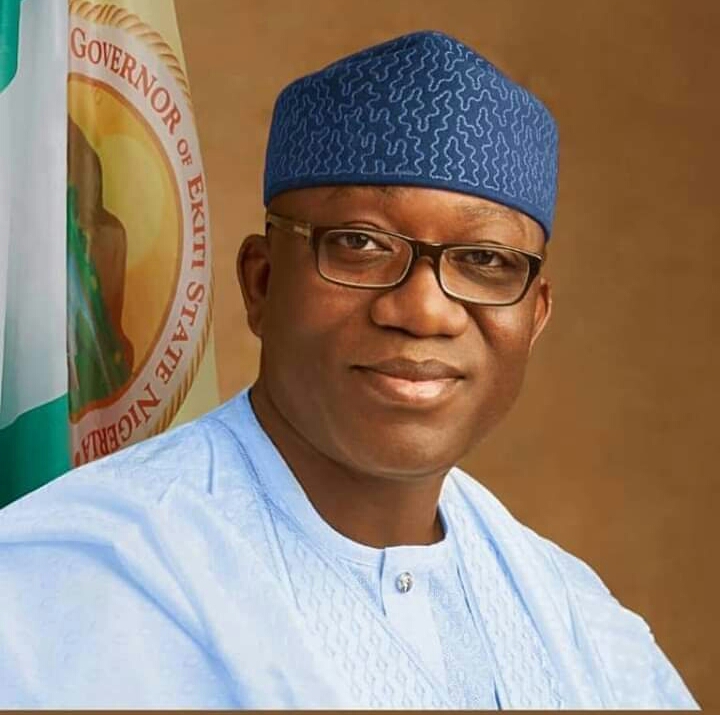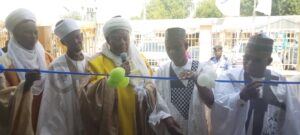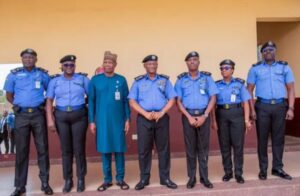
EKITI State Governor, Dr Kayode Fayemi, on Tuesday, presented the 2021 budget estimate of the state, christened ‘Budget of Recovery and Economic Restoration’ with the estimate of N109.666bn to the House of Assembly.
The budget, which is made up of N57.997bn as recurrent expenditure and N51.668bn as capital expenditure, represents a 20 per cent increase when compared to 2020 Supplementary Budget, which had a size of N91.128bn.
Fayemi said, “The 2021 budget is aimed at speedy economy recovery and restoration from the debilitating effects of COVID-19. Based on global forecast, it is envisaged that the impact of the pandemic would span for a period of two to three years.
“We are all aware of the security challenge being faced in the country. The recent EndSARS protest of our youths, which was hijacked by hoodlums, is an eye opener. We have made provision for Safe City Project in the 2021 budget. Also, the Regional Security Network, Amotekun, shall be fully operational in 2021.
He also reiterated his administration’s commitment to workers’ welfare, saying, “We have kept faith with our electioneering promise of prompt payment of salaries. We are also committed to clearing backlogs of outstanding salaries and other emoluments.
“Provision has been made in the 2021 Budget to implement the new minimum wage. Adequate provisions have been made in the 2021 proposed budget to consolidate on our efforts on the provision of the basic infrastructure to improve their aesthetic and economic values.”
Giving a breakdown of the budget in accordance with the five pillars of the Fayemi administration, governance takes the largest chunk with N29.322bn representing 27 per cent, followed by social investments, which take N25.274bn representing 23 per cent.
Works, education get chunk of 2021 Delta budget
In Delta, the State Governor, Ifeanyi Okowa, has earmarked the sum N207, 253,571,322bn for capital expenditure for the 2021 fiscal year with road infrastructure getting the sum of N66.6bn, accounting for 54.76 per cent of the total budget sum of N378bn, while N23.5bn was earmarked for the education.
Okowa, who stated this on Tuesday while presenting the budget proposal of N378bn christened ‘Budget of Recovery’ to State House of Assembly, noted the increase stemmed from the gradual improvement in some revenue streams, especially the improvement in receipts from FAAC.
He explained that there was a corresponding increase in funding of “critical capital projects that can create wealth and improve the quality of lives of our people.”
Meanwhile, the Kano State Governor, Dr Abdullahi Umar Ganduje, on Tuesday, presented the sum of N147,935,302,948 to the Kano State House of Assembly, as the 2021 fiscal appropriation, tagged ‘Budget for economic recovery and sustainable development’.
Ganduje said, “The budget reflects our vision for diversification of the state sources of revenue with a view to laying a solid foundation, so as to guide the administration to pursue its development objectives, built on our operational principles, aspirations and priorities, geared towards the continued leadership position of the state, particularly in education, water supply, health, agriculture and infrastructural development.
“The total recurrent revenue to be collected is estimated at N106,121,457,794, consisting of N24,000,256,503, as Internally Generated Revenue and N52,250,000,00, as revenue from the Federation Account, while value added tax stands at N28,401,874,754.
Other receipts, he said, stood at N1,469,326,537, adding that the total recurrent revenue was lower than that of 2020 by N604,692,618.
The total recurrent expenditure of the 2021 budget, according to the governor, stands at N73,273,989,998, that consists of N7,692,437,537 as Consolidated Revenue Fund Charges.
By Abiodun Nejo












